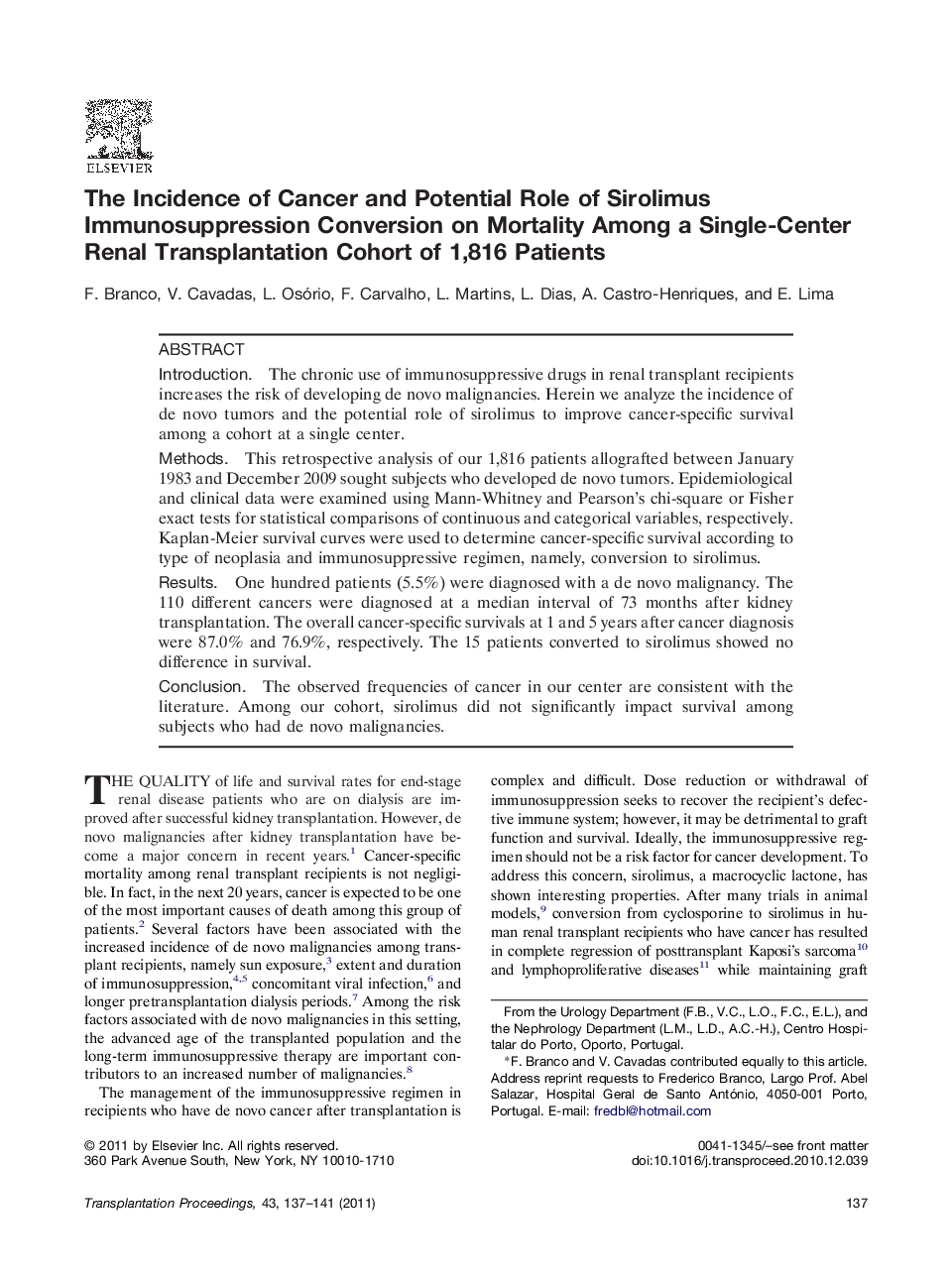| Article ID | Journal | Published Year | Pages | File Type |
|---|---|---|---|---|
| 6248858 | Transplantation Proceedings | 2011 | 5 Pages |
IntroductionThe chronic use of immunosuppressive drugs in renal transplant recipients increases the risk of developing de novo malignancies. Herein we analyze the incidence of de novo tumors and the potential role of sirolimus to improve cancer-specific survival among a cohort at a single center.MethodsThis retrospective analysis of our 1,816 patients allografted between January 1983 and December 2009 sought subjects who developed de novo tumors. Epidemiological and clinical data were examined using Mann-Whitney and Pearson's chi-square or Fisher exact tests for statistical comparisons of continuous and categorical variables, respectively. Kaplan-Meier survival curves were used to determine cancer-specific survival according to type of neoplasia and immunosuppressive regimen, namely, conversion to sirolimus.ResultsOne hundred patients (5.5%) were diagnosed with a de novo malignancy. The 110 different cancers were diagnosed at a median interval of 73 months after kidney transplantation. The overall cancer-specific survivals at 1 and 5 years after cancer diagnosis were 87.0% and 76.9%, respectively. The 15 patients converted to sirolimus showed no difference in survival.ConclusionThe observed frequencies of cancer in our center are consistent with the literature. Among our cohort, sirolimus did not significantly impact survival among subjects who had de novo malignancies.
